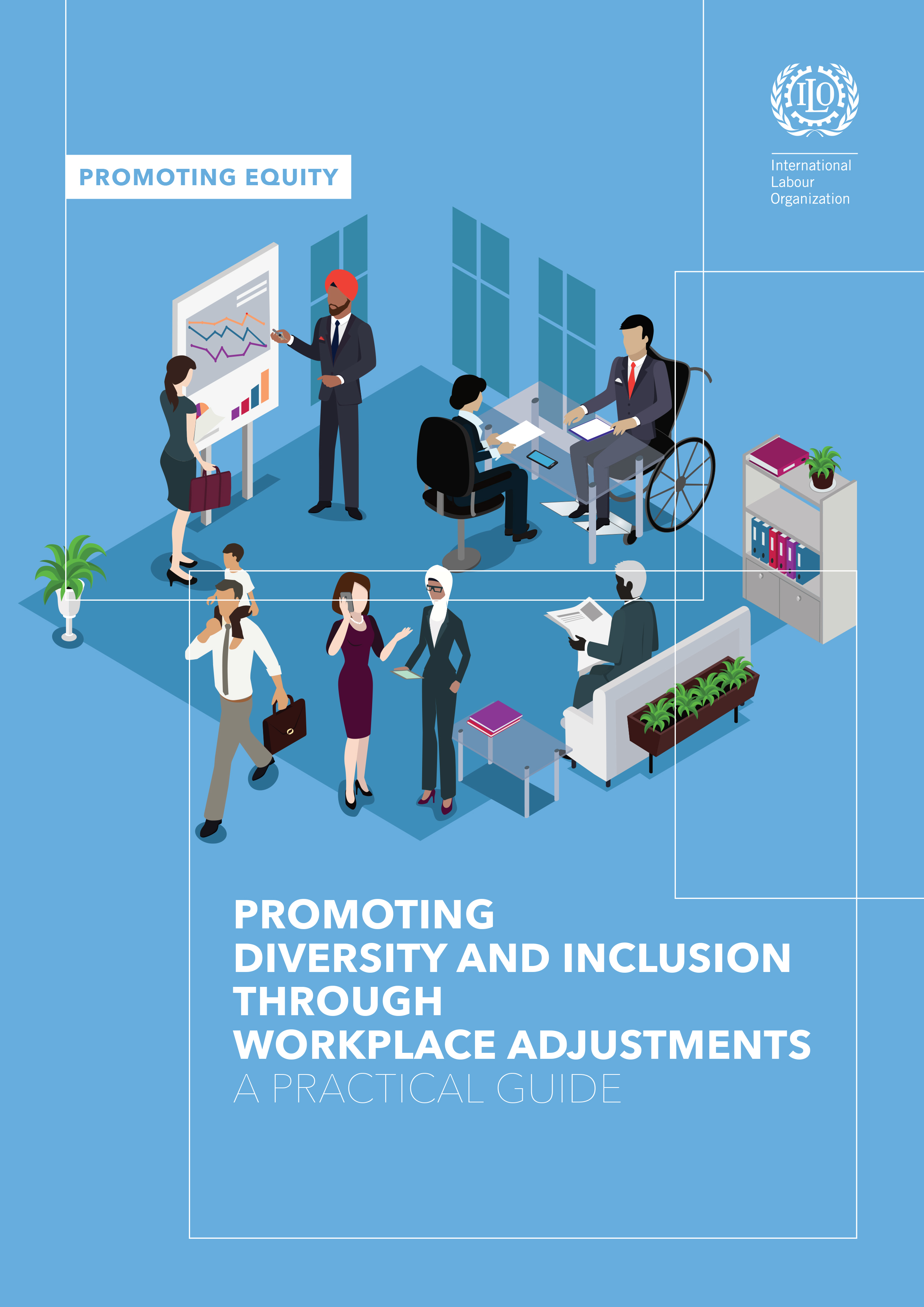
The draft benefitted from the insight and experience of a number of experts from business, trade unions and academia, including Alberto Vásquez, Office of the UN Special Rapporteur on the Rights of Persons with Disabilities.
The UN Convention on the Rights of Persons with Disabilities (CRPD) defines reasonable accommodation as: “Necessary and appropriate modification and adjustments not imposing a disproportionate or undue burden, where needed in a particular case, to ensure to persons with disabilities the enjoyment or exercise on an equal basis with others of all human rights and fundamental freedoms”.
While recognizing that the need for a reasonable accommodation may arise in a variety of situations, this guide focuses, among other three categories, on workers with disabilities.
Disabilities arise from the interaction of individual impairments (e.g. physical, sensory, intellectual or mental) with attitudinal or environmental barriers. It is important to be aware of the diversity of conditions experienced by individuals with disabilities and the invisible barriers that they may encounter.
For example, a person on the autism spectrum may find it difficult to perform his or her job due to persistent worries about managing the workload. A reasonable accommodation could be to provide the worker with some additional support from the line manager. This could take the form of regular meetings with the worker to review commitments and schedule.
It is important to be aware that the protection from discrimination on the ground of disability, including the provision of reasonable accommodation, usually extends also to persons with caregiving responsibilities for a relative with a disability. For example, parents caring for a child with a disability may need certainty about when the working day finishes in order to schedule paid carers.
The distinction between reasonable accommodation and accessibility
Sometimes there is confusion around the distinction between broader measures that are aimed at making companies accessible for all and the specific concept of reasonable accommodation. While these are complementary in nature, they are different, so it is important to be clear about the meaning of each at the outset.
Accessibility is a concept that stems from law and policy on disability. Nevertheless, the underlying idea of designing work in an inclusive fashion is also relevant to those with particular religious beliefs, or those with family responsibilities.
Accessibility covers matters such as the design of the built environment, the types of technologies used in the workplace or other ways in which work is structured. Accessibility implies strategic planning by companies in advance, and on a continuous basis. “Universal Design” is an approach that aims to ensure that products, environments, programmes and services are usable by all people, to the greatest extent possible, without the need for adaptation or In most companies, it is recommended to plan in advance for any costs associated with providing reasonable accommodation.